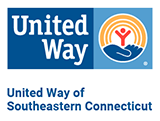On October 19, United Way will have its annual fall reading day in support of Jumpstart’s Read for the Record. Volunteers will flood into schools, libraries, and community centers across the country to make kids’ days by reading aloud from the same book. But the point of this event is not just to enjoy a book together (although this year’s book looks adorable, check it out here). It’s also to bring attention to the importance of early childhood literacy and quality education.
As I toddler, I was given a priceless gift- my parents read aloud to me. In our small house we had a closet that was just large enough to crawl inside, and I would pull blankets onto the floor and sit on them as my dad read Goodnight, Moon and every Dr. Seuss book ever written. He’d fall asleep halfway through, exhausted from work, and I’d wake him up, wanting to hear the end of the story. Unbeknownst to me at the time, this ritual was the foundation of my literacy skills and ignited a lifelong love of reading. As a middle schooler I sometimes became so absorbed in whatever novel I was reading that I’d plop down on the hard kitchen floor and stay put until I had finished it. While this was undoubtedly annoying for everyone else in my house, my interest in books helped me expand my vocabulary and perform well in school. The writing skills that it fostered helped me pursue scholarships, get into college, submit a thesis, apply for internships, and eventually draft the cover letter that got me here, writing to you. But my experience is not unique in any way. In fact, studies have demonstrated strong links between exposure to quality reading experiences as a young child and success later in life. As the organization Make Way for Books explains:
“Children who are read to, sung to, and talked to from a young age develop bigger vocabularies, become better readers, and are more likely to succeed in school.
Research indicates that when children are reached with high quality early learning experiences, they are 40% less likely to fall behind in school and 70% more likely to graduate from high school. In fact, according to the Annie E. Casey Foundation, half of the school achievement gap between economically-disadvantaged young children and their more affluent peers starts before kindergarten.”
Yet surprisingly, among fourth graders who are reading below basic levels, 32% are from homes where their parents have college degrees. The importance of early literacy is therefore applicable to families regardless of socioeconomic strata. Prevention and early intervention programs can bring 80-90% of below-level readers up to speed, but it’s important that these services are utilized before a child reaches nine years old- after that time it becomes much more difficult to acquire the necessary skills. In fact, Jumpstart cites that a child who isn’t reading at grade level by the time they get to fourth grade is four times more likely to drop out of high school. With these statistics in mind it becomes easier to see how listening to stories in the closet had such an impact on my life. And despite sounding gloomy, these numbers also bring hope: by encouraging early literacy and providing kids with positive reading experiences, we can keep them in school longer and set them up for success.
So what can you do? You may not be a parent or a teacher, but you can still be a part of a child’s early reading experience by volunteering during the upcoming United Way Reading Day. You’ll be helping children in your community develop language skills, critical thinking, curiosity and, hopefully, a lifelong love of books.
Live United,
Caitlin
Sources:
